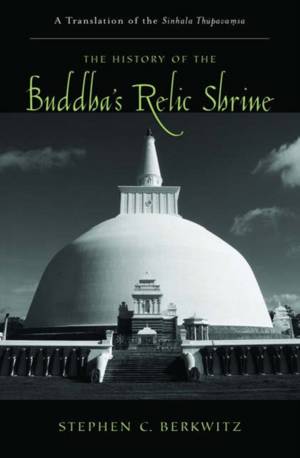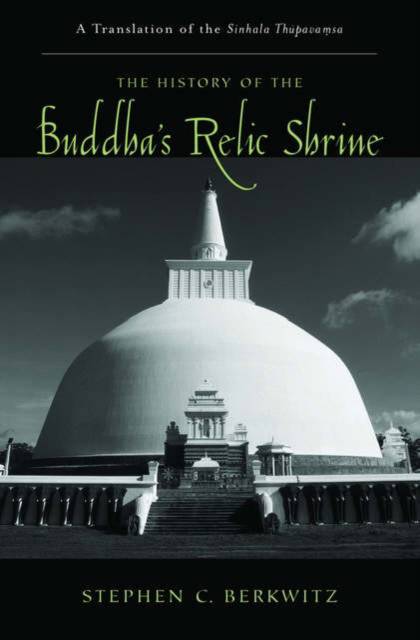
Bedankt voor het vertrouwen het afgelopen jaar! Om jou te bedanken bieden we GRATIS verzending (in België) aan op alles gedurende de hele maand januari.
- Afhalen na 1 uur in een winkel met voorraad
- In januari gratis thuislevering in België
- Ruim aanbod met 7 miljoen producten
Bedankt voor het vertrouwen het afgelopen jaar! Om jou te bedanken bieden we GRATIS verzending (in België) aan op alles gedurende de hele maand januari.
- Afhalen na 1 uur in een winkel met voorraad
- In januari gratis thuislevering in België
- Ruim aanbod met 7 miljoen producten
Zoeken
The History of the Buddha's Relic Shrine
A Translation of the Sinhala Thupavamsa
Stephen C. (Assistant Professor of Religious Studies, Assistant
€ 70,95
+ 141 punten
Omschrijving
Offers the complete English translation of the Buddhist chronicle called the "Sinhala Thupavamsa", composed by Parakam Pandita in thirteenth-century Sri Lanka. This work also relates the mythological history of the Buddhas previous lives as a bodhisattva and concludes with a prediction about the future Buddha Maitreya.
Specificaties
Betrokkenen
- Auteur(s):
- Uitgeverij:
Inhoud
- Aantal bladzijden:
- 320
- Reeks:
Eigenschappen
- Productcode (EAN):
- 9780195301397
- Verschijningsdatum:
- 11/01/2007
- Uitvoering:
- Hardcover
- Afmetingen:
- 151 mm x 226 mm
- Gewicht:
- 500 g

Alleen bij Standaard Boekhandel
+ 141 punten op je klantenkaart van Standaard Boekhandel
Beoordelingen
We publiceren alleen reviews die voldoen aan de voorwaarden voor reviews. Bekijk onze voorwaarden voor reviews.









